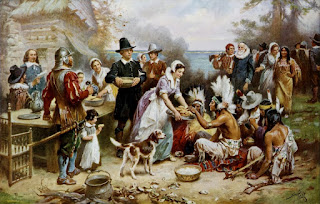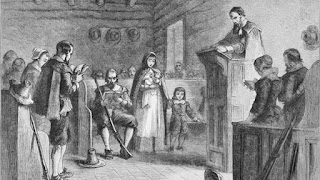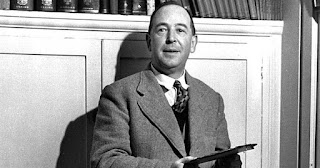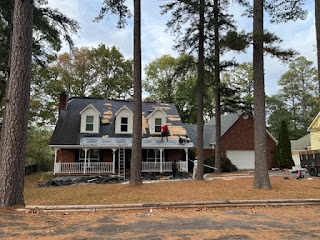My An Arkie's Faith column from the December 28, 2022, issue of The Polk County Pulse.
It's Christmas Eve, and the house is a bustle of activity. The kitchen has been busy all day as my wife and daughter have been preparing our Christmas Eve feast. The tradition in our family is to have Christmas Dinner on Christmas Eve, followed by a special Christmas breakfast the next morning. Flour covers the kitchen table as homemade rolls, pumpkin pie, and apple pie are prepared. Even though it is a cold day, it is hot in the kitchen as both ovens, and the stovetop are in use.
When we sat down to eat, there was so much food that it would not fit on the table. On the sideboard were roast beef, dressing, creamed corn, mounds of mashed potatoes, gravy, homemade cranberry sauce, rolls, and pies. Because I lack even a tiny amount of self-control when it comes to food, I ate until I was stuffed.
I had been eating way too much all week. It is a Christmas hazard. I baked cookies and made almond bark to give as gifts. I had to sample a large amount of both to ensure they were high-quality enough to give away. Friends and customers brought goodies to my shop, and it would be impolite not to eat them. My brother-in-law sent a box of his wonderful homemade candy. As I popped another piece of candy into my mouth, I thought, "When New Year's gets here, I am going to start being careful what I eat."
I am not the first person to make a New Year's resolution. I imagine you have made resolutions. Making resolutions at the beginning of the New Year has a long history. Over 2,500 years ago in Babylon, people would make promises to their gods at the beginning of each year. Popular promises were things such as paying debts and returning borrowed items. Interestingly, we make resolutions on January 1st because January is named after the Roman God Janus. The Romans traditionally made annual promises to Janus.
What about the God that you serve? Does He want you to make promises to Him? Is there a right and wrong way to make resolutions? Christians should be committed to the idea that people can change for the better. We should hope for such a change in our lives and the lives of others.
Suppose you ask the average person about their resolutions for the New Year. They will probably tell you things such as cutting down on their eating, exercising more, stopping doing unhealthy things, and starting doing healthy things, etc. While these things are good, they all focus on and rely on self. These kinds of things are self-serving and rely on the power of one's self to accomplish them. Self-improvement for most people means making themselves more attractive, healthier, and happier. They depend on the power of the human will to bring about the changes.
My favorite cartoon when I was a kid was Peanuts. I remember one comic strip in particular. It is January 1st, and Charlie Brown tells anyone who will listen, "The best way to keep New Year's Resolutions is in a sealed envelope in a bottom desk drawer. Charlie Brown knew what every person who has ever made a New Year's resolution knows. Making and keeping resolutions is a troublesome business, usually filled with failure and shame.
How have your past resolutions worked out for you? I don't even want to talk about mine. If you have made and broken resolutions on many previous New Year's days, you may feel that you might as well seal them in a bottom desk drawer and forget them. That is the experience I have had.
Look at how different our typical resolutions are from the words of Paul in Colossians 3:12-14 (NCV). "God has chosen you and made you his holy people. He loves you. So you should always clothe yourselves with mercy, kindness, humility, gentleness, and patience. Bear with each other, and forgive each other. If someone does wrong to you, forgive that person because the Lord forgave you. Even more than all this, clothe yourself in love. Love is what holds you all together in perfect unity."
Notice how Paul's words are focused on others. If we are to use resolutions wisely, we need to turn our attention away from ourselves and toward others. Instead of focusing on ourselves, we need to focus on God and the strength that comes only from him.
John was called the disciple that Jesus loved. It appears that Jesus had a best friend. I want my resolution to be the words that the best friend of Jesus wrote in 1 John 4:7,8 (NCV). "Dear friends, we should love each other, because love comes from God. Everyone who loves has become God's child and knows God. Whoever does not love does not know God, because God is love."
I don't know of a better resolution that you could make. If we would all resolve to love one another, imagine how different the world would be. Jesus knows you're busy and cares about the many things you have to do. So He promises that time spent with him will make you more productive: "But seek first the kingdom of God, and His righteousness, and all these things will be added to you." Matthew 6:33 (ESV)
Gentle Reader, New Year's resolutions aren't worthless. People who set goals are ten times more likely to succeed than those who don't. Everything that we accomplish in life is because we resolve to do it. There is no need to be discouraged if you've failed before. We all will fail at some point in our life. Failing is a learning experience so that we can do better next time. "A righteous person may fall seven times, but he gets up again." Proverbs 24:16 (GW) This year, instead of focusing on personal performance, how about focusing on a relationship with God and showing his love to others. Happy New Year!

















.jpg)





































.jpg)










